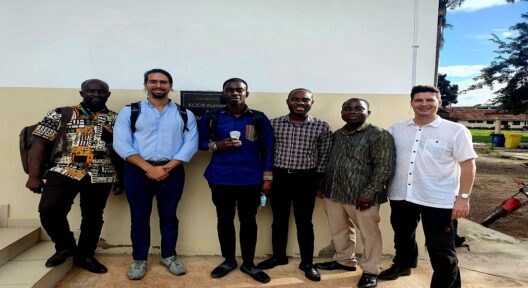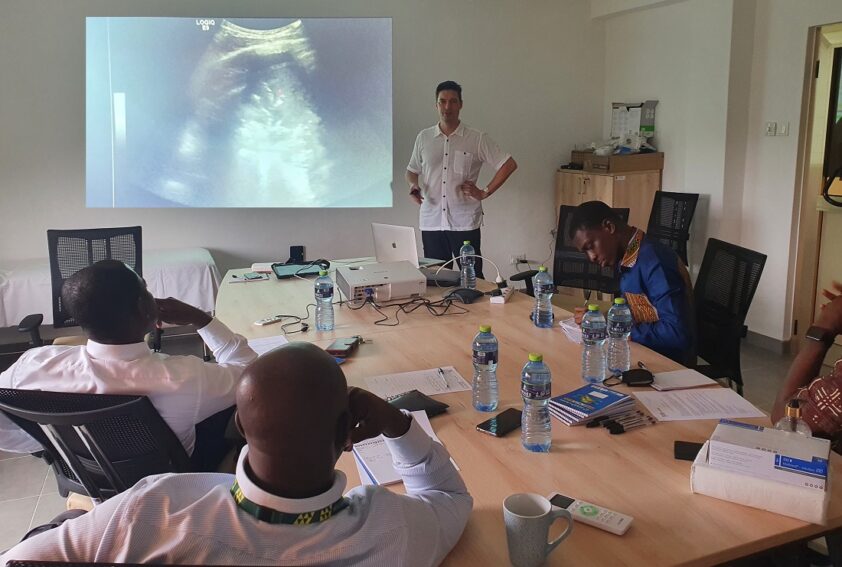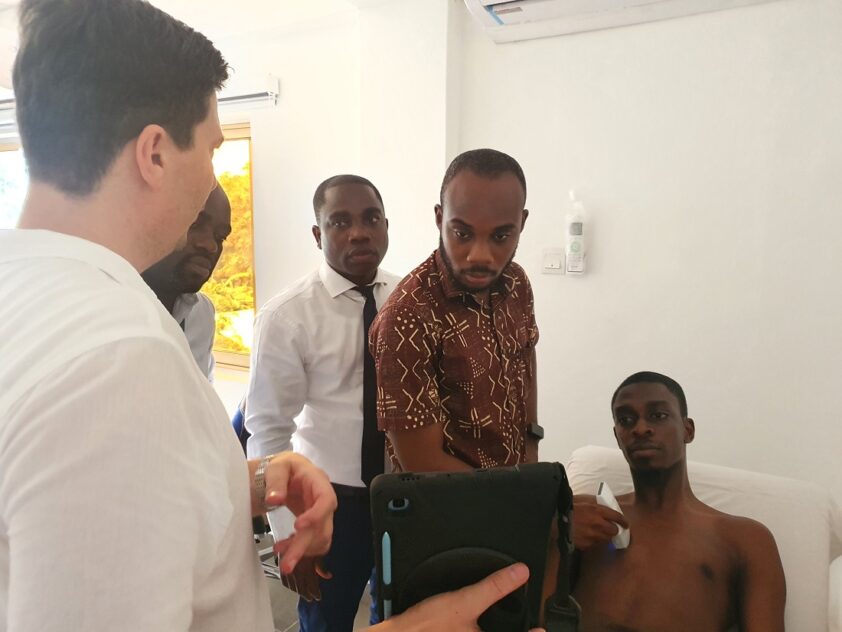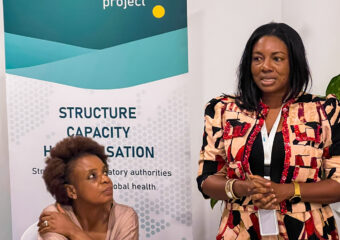Training on Point-of-Care Ultrasound of the Lung (‘POCUS’) for the Differential Diagnosis of Respiratory Infections carried out in Ghana
Viruses or bacteria? Both pathogens can cause infections of the lower respiratory tract. In order to treat these in a targeted manner, a so-called differential diagnosis is necessary, a diagnosis via rule-out procedure. However, this is not cheap and hardly affordable in resource-poor countries. That is why doctors often prescribe antibiotics straight away. New findings show that mobile near-patient ultrasound tests in combination with rapid virus tests could help to reduce unnecessary antibiotic therapy. BNITM and UKE staff recently trained colleagues in Ghana in the use of pulmonary point-of-care ultrasound testing (POCUS).

All over the world, doctors are prescribing too many unnecessary antibiotics. This leads to bacteria becoming resistant and the medication no longer working.
Especially in resource-poor regions, doctors often prescribe unnecessary antibiotics for fear of overlooking potentially life-threatening bacterial infections of the respiratory tract. Often, laboratory diagnostics and imaging that could help in this decision are scarce or non-existent. As part of the CLEAR project, we are moving diagnostic capacity to Ghana. In doing so, we are not only responding to the COVID-19 pandemic. We are also trying to improve diagnostic capacity to distinguish between viral and bacterial infections and thus reduce the unnecessary use of antibiotics.
Current evidence suggests that timely ultrasound examination of the lungs could not only help detect lower respiratory tract infections with equal or better accuracy than chest X-rays, but also support therapy while avoiding patient exposure to radiation.
CLEAR staff from BNITM, together with POCUS experts from UKE1, conducted a lung POCUS training for medical staff in public hospitals in Ghana to extend the diagnostic services offered by CLEAR to the participating public health centres. The training was attended by four doctors working in the Emergency Medicine and Internal Medicine departments of three different district hospitals in the Ashanti and Central Regions of Ghana respectively: the Saint Francis Xavier Hospital (Assin Foso), the KNUST Teaching Hospital (Kumasi) and the Agogo Presbyterian Hospital (Agogo). This four-day training was divided into theoretical and practical sessions, which included POCUS examination of patients with respiratory infections in the hospital ward. With this approach, we want to support trainees in this imaging procedure so that they can train other medical staff in their respective hospitals (‘train-the-trainer’ approach). Ultimately, we expect POCUS to be introduced as a routine procedure for diagnosing lower respiratory tract infections in these hospitals.


Date: December 2022



